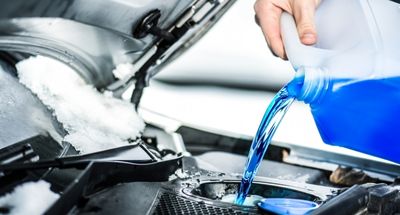As temperatures drop, you may start thinking about how to prepare your car for cold weather. One of the most common questions drivers ask is:
“Does my car need antifreeze in the winter?”
The short answer is: Yes—your car absolutely needs antifreeze in the winter.
In fact, antifreeze is always necessary, but it plays an especially important role during cold months.
Let’s break down why antifreeze matters, what it does, and how to make sure your vehicle is winter-ready.
What Is Antifreeze?
Antifreeze, also called engine coolant, is a fluid made of ethylene glycol or propylene glycol mixed with water. It’s designed to:
- Lower the freezing point of the liquid in your radiator
- Raise the boiling point, so your engine doesn’t overheat
- Prevent corrosion inside your engine and cooling system
Most antifreeze products are sold as a 50/50 mix of antifreeze and water, which is ideal for year-round use.
Why Antifreeze Is Crucial in Winter
1. Prevents the Engine from Freezing
Without antifreeze, the water in your radiator and engine could freeze solid in extreme cold. Frozen coolant expands, which can crack your engine block, radiator, or hoses—leading to very expensive repairs.
2. Maintains Proper Engine Temperature
Even in cold weather, your engine needs to operate at the right temperature. Antifreeze helps regulate heat during winter start-ups and running conditions.
3. Protects Against Corrosion
Antifreeze contains additives that prevent rust and scale buildup. This protection is critical when your car sits unused for long periods during cold months.
How to Know If You Have Enough Antifreeze
1. Check the Coolant Level
Open the hood and look at the coolant reservoir (do this when the engine is cool). It should be between the “MIN” and “MAX” lines. If it’s low, top it off with the right coolant mix.
2. Look at the Color
Healthy coolant is usually bright green, orange, pink, or blue, depending on the type. If it looks brown, dirty, or sludgy, it may need to be flushed and replaced.
3. Use a Coolant Tester
An inexpensive antifreeze tester (hydrometer) can measure the mixture’s freeze protection level. Ideal freeze protection is usually around -34°F (-37°C) with a 50/50 mix.
What Happens If You Don’t Use Antifreeze?
If your engine coolant isn’t mixed properly or is just plain water, here’s what could happen in freezing temperatures:
- Cracked engine block or cylinder head
- Burst radiator or hoses
- Loss of cabin heat (heater relies on hot coolant)
- Engine overheating due to restricted flow or leaks
- Costly repairs that could’ve been avoided with a simple check
Should You Add Pure Antifreeze?
No. You should never add 100% pure antifreeze. Coolant works best when it’s mixed 50/50 with water. Too much antifreeze can actually reduce heat transfer and freeze protection.
If you’re topping off, use a pre-mixed 50/50 coolant, or if using concentrate, mix it properly before adding.
Tips to Keep Your Cooling System Winter-Ready
- Check coolant level monthly, especially during winter
- Inspect for leaks around the radiator, hoses, and water pump
- Flush the system every 2–5 years, depending on your vehicle and coolant type
- Never open the radiator cap when the engine is hot—wait until it’s cool
FAQs
Do all cars use the same antifreeze?
No. Different vehicles require specific types (like green IAT, orange Dex-Cool, or HOAT/PHOAT coolants). Always check your owner’s manual or use the same type already in the system.
Can I drive with low coolant in winter?
You can, but it’s risky. Low coolant can cause overheating—even in cold weather—and may lead to engine damage.
Is water enough if I’m in a pinch?
In an emergency, distilled water can be used temporarily, but it won’t provide freeze protection. Add proper coolant as soon as possible.
Final Thoughts
Yes, your car definitely needs antifreeze in the winter. It’s essential for protecting your engine from freezing temperatures, maintaining proper operating temps, and avoiding expensive repairs.
Checking your coolant level and condition takes just a few minutes and can save you from major headaches during freezing weather. Before winter hits hard, pop the hood and make sure your cooling system is ready to go.








